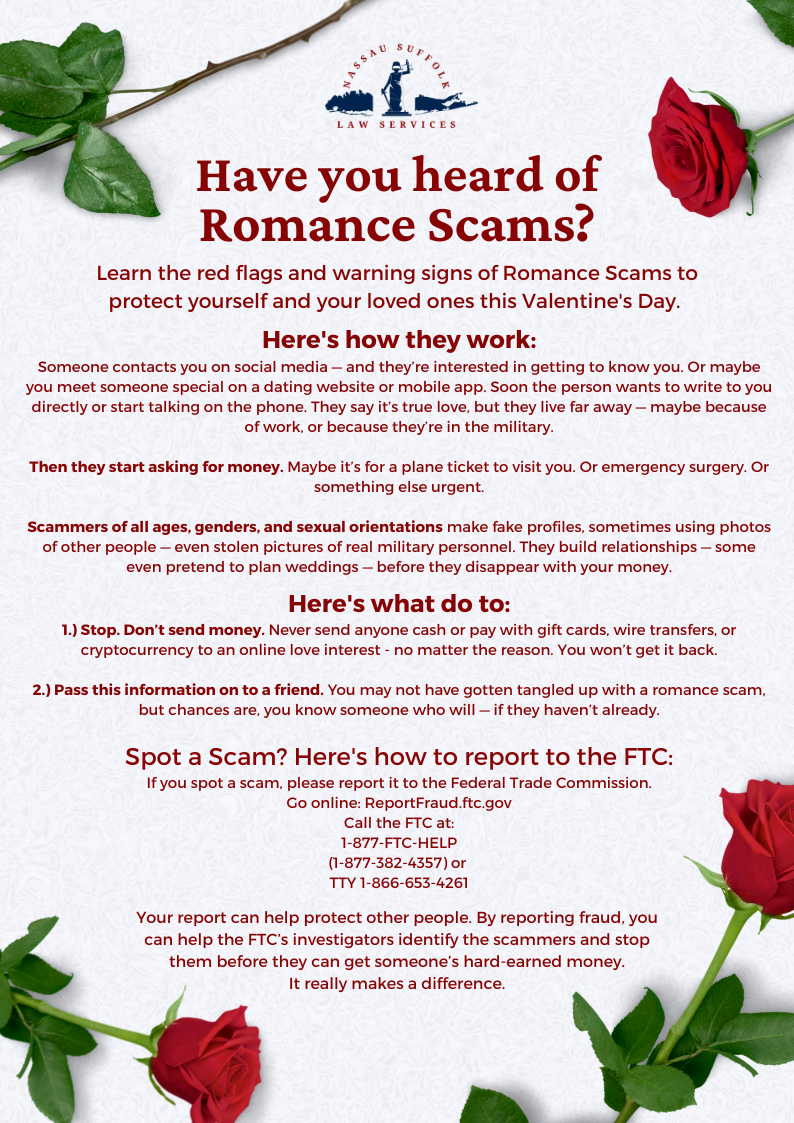Have you heard of Romance Scams?

Show Your Love For Law Services 2023
February 13, 2023
Community Legal Help Project: March Dates
February 27, 2023Learn the red flags and warning signs of Romance Scams to protect yourself and your loved ones this Valentine’s Day.
Here’s how they work:
Someone contacts you on social media — and they’re interested in getting to know you. Or maybe you meet someone special on a dating website or mobile app. Soon the person wants to write to you directly or start talking on the phone. They say it’s true love, but they live far away — maybe because of work, or because they’re in the military.
Then they start asking for money. Maybe it’s for a plane ticket to visit you. Or emergency surgery. Or something else urgent.
Scammers of all ages, genders, and sexual orientations make fake profiles, sometimes using photos of other people — even stolen pictures of real military personnel. They build relationships — some even pretend to plan weddings — before they disappear with your money.
Here’s what do to:
1.) Stop. Don’t send money. Never send anyone cash or pay with gift cards, wire transfers, or cryptocurrency to an online love interest – no matter the reason. You won’t get it back.
2.) Pass this information on to a friend. You may not have gotten tangled up with a romance scam, but chances are, you know someone who will — if they haven’t already.
Spot a Scam? Here’s how to report to the FTC:
If you spot a scam, please report it to the Federal Trade Commission.
Go online: ReportFraud.ftc.gov
Call the FTC at 1-877-FTC-HELP (1-877-382-4357) or TTY 1-866-653-4261
Your report can help protect other people. By reporting fraud, you can help the FTC’s investigators identify the scammers and stop them before they can get someone’s hard-earned money. It really makes a difference.

